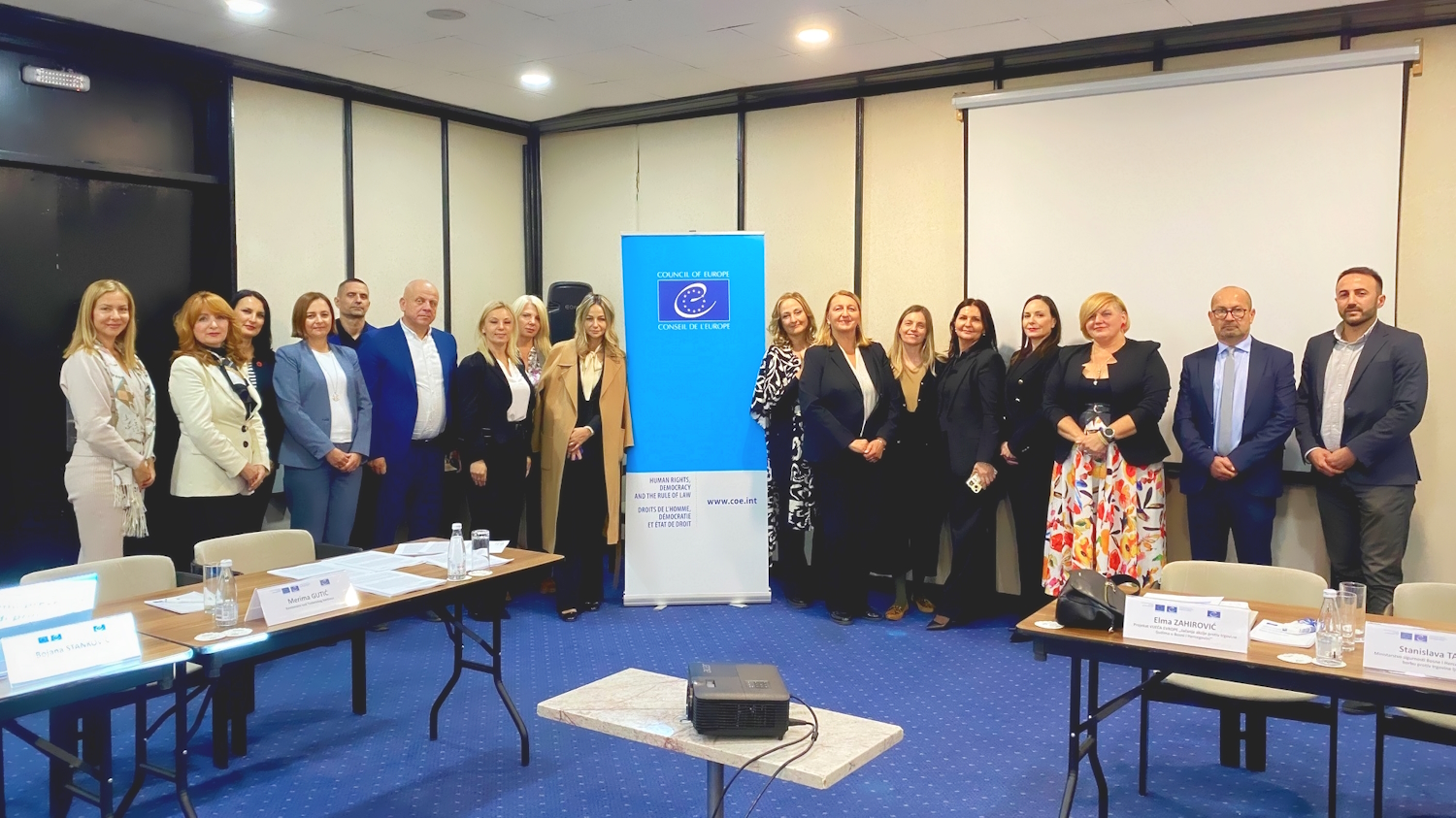Hotline: +381 61 63 84 071
Strengthening cooperation between Serbia and Bosnia and Herzegovina in protecting child victims of human trafficking

Strengthening cooperation between Serbia and Bosnia and Herzegovina in protecting child victims of human trafficking
Lidija Đorđević, representative of NGO Atina, took part on October 2 in Sarajevo in a meeting of representatives of institutions and civil society organizations from Serbia and Bosnia and Herzegovina, dedicated to combating child trafficking for forced begging, one of the most severe and persistent forms of exploitation in the region.
“In both countries, it is civil society organizations that provide victims of human trafficking with the most concrete, stable, and long-term support. They are a source of reliance not only for victims but also for institutions that, within their systems, lack the capacity to respond to all the needs of children and women at risk,” emphasized Đorđević.
The meeting served as a platform for sharing experiences, identifying challenges in investigations and court proceedings, and discussing ways to improve the protection of child victims of human trafficking. Participants agreed that timely identification and safety of children require coordinated action of all relevant actors, from the police and prosecution to social welfare services and civil society organizations, which often represent the first line of support.
The crucial role of mobile teams and referral mechanisms in the early detection and assistance to child victims of trafficking was particularly emphasized.
Representatives of the Prosecutor’s office and the Ministry of Interior of the Tuzla Canton pointed out the challenges they have been facing following the closure of the shelter run by the International Forum of Solidarity “Emmaus”, especially concerning the provision of accommodation and continuous support for victims. Participants agreed that legal and psychological support remain essential, particularly when working with children and youth.
For the Serbian delegation, it was especially valuable to learn from Bosnia and Herzegovina’s experience with mobile teams, which, through a proactive approach at the community level, successfully identify children forced into begging. This model could serve as an example of good practice in Serbia, notably through cooperation with civil society organizations that are already active in the field and familiar with the local contexts of various communities.
The discussion also addressed the sustainability of support services: while in Bosnia and Herzegovina, the funding of civil society organizations depends on the annual adoption of state budgets, in Serbia, the state still does not provide systemic support for the work of NGOs, despite the crucial role these organizations play in identifying and protecting victims.
NGO Atina will continue to advocate for strengthening institutional cooperation, the proactive identification of child victims of human trafficking, and the establishment of sustainable community-based support services, as the well-being of the child must remain the foundation of every effective response to human trafficking.
The Serbian delegation included the National anti-trafficking coordinator, representatives of the Office for coordination of anti-trafficking activities, the Criminal police directorate, the Center for protection of victims of human trafficking, the High Court in Belgrade, the Supreme public prosecutor’s office, the Ministry of Labor, employment, veteran and social Affairs, and the NGOs Astra and Atina.
The Bosnian and Herzegovinian delegation included the Head of the anti-trafficking department of the Ministry of security of BiH, representatives of the Prosecutor’s office of BiH, the Cantonal prosecutor’s office and Court of the Tuzla canton, the Ministries of Interior of Republika Srpska and the Tuzla canton, as well as the Center for women’s rights from Zenica.
The meeting was organized as a joint activity of the Council of Europe’s project “Strengthening access to justice and effective remedies for victims of human trafficking in Bosnia and Herzegovina”, implemented within the Council of Europe Action Plan for Bosnia and Herzegovina 2022–2025, and the project “Strengthening the fight against human trafficking in Serbia”, conducted under the joint EU–Council of Europe programme Horizontal Facility for the Western Balkans and Türkiye.
You can read more about the event on the Council of Europe’s website: Serbia and Bosnia and Herzegovina step up joint action against child trafficking - Council of Europe Office in Belgrade












 FACEBOOK
FACEBOOK TWITTER
TWITTER YOUTUBE
YOUTUBE